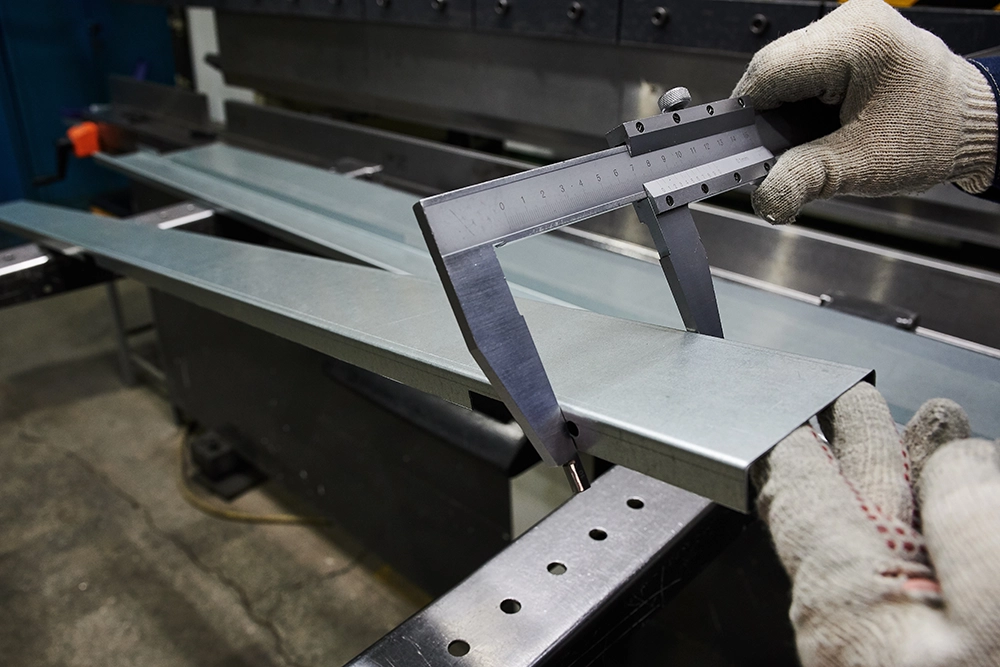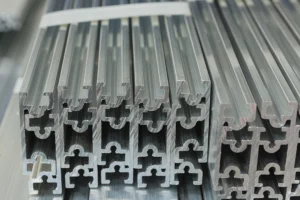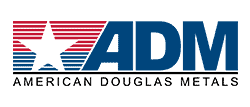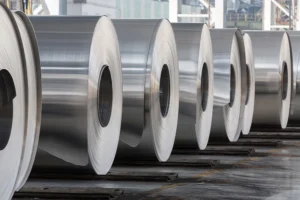
In the competitive landscape of manufacturing, selecting a reliable aluminum manufacturer is critical for businesses looking to leverage this versatile metal. Aluminum manufacturers in the United States offer a range of products known for their durability, strength, and resistance to corrosion. These qualities make aluminum an ideal choice for industries that require materials that are both lightweight and strong, such as aerospace and construction. For businesses, understanding the nuances of aluminum grades and sourcing from top aluminum suppliers can significantly impact product quality and operational efficiency.
When considering manufacturing companies for aluminum supply, it’s essential to gauge their expertise and ability to meet specific industry needs. American Douglas Metals (ADM) shines as an exemplar in this field, boasting 43 years of experience and a vast network that includes 11 warehouses and 15 sales offices across the East Coast and Canada. Their commitment to providing high-quality aluminum and steel products alongside customized metal solutions positions ADM as an aluminum supplier of choice for a diverse clientele seeking industry-leading service and community engagement.
Understanding Aluminum Grades and Alloys
In the aluminum manufacturing industry, expertise in aluminum grades and alloys is paramount. Aluminum is seldom used in its pure form; instead, it is typically alloyed to enhance its properties for specific applications. Each alloy is tailored to offer unique advantages, from increased strength to improved corrosion resistance, making the selection of the right aluminum grade a critical business decision.
Aluminum Grades and Their Applications:
- 1000 Series: These are primarily composed of 99% pure aluminum and are known for their excellent corrosion resistance and workability, making them suitable for chemical storage and electrical transmission.
- 3000 Series: Containing manganese, these alloys offer a balance of strength, workability, and resistance to corrosion, often used in cookware and general sheet metal work.
- 6061: This alloy, known as “The Workhorse,” is favored in applications requiring high wear resistance, including structural components due to its weldability and corrosion resistance.
Categorization of Aluminum Alloys:
- Wrought Alloys: These are malleable and can be formed into various shapes, with the non-heat treatable variants (1xxx, 3xxx, 5xxx) hardened by cold working, while heat treatable types (2xxx, 6xxx, 7xxx) can be strengthened further through heat treatment.
- Cast Alloys: Utilized for their ability to be cast into fixed shapes, they typically do not achieve the strength levels of wrought heat treatable alloys.
Alloy Identification and Customization:
- Identification System: A four-digit numbering system classifies alloys, with the first digit indicating the principal alloying element.
- Custom Processing: Manufacturers like American Douglas Metals (ADM) offer custom processing capabilities to meet the exact needs of diverse projects, ensuring that clients receive the most suitable aluminum grade for their specific application.
By understanding these classifications and the properties of each aluminum grade, businesses can make informed decisions when selecting an aluminum supplier. With over four decades of industry experience, ADM stands as a testament to the importance of matching the right aluminum grade with the intended application.
Evaluating Manufacturer Expertise and Experience
When assessing the expertise and experience of aluminum manufacturers in the USA, businesses must consider a variety of factors that demonstrate the manufacturer’s industry capabilities:
In-House Capabilities and Advanced Technology:
- Look for manufacturers with an in-house tool & die shop, suggesting a high level of control over production and the ability to create custom solutions.
- Evaluate their use of advanced technology, such as CNC & Swiss machining, laser cutting, and robotic welding, which indicates a commitment to precision and innovation.
Supply Chain and Risk Mitigation:
- A reliable supply chain is essential; verify that the manufacturer can consistently provide raw materials and minimize disruptions.
- Inquire about their risk mitigation strategies, including quality control standards, penalty clauses for delays, and intellectual property protection agreements.
Certifications and Manufacturing Capabilities:
- Ensure the supplier holds necessary certifications, ensuring credibility and compliance with industry regulations.
- Assess their manufacturing capability, process strength, labor capacity, internal documentation, materials management, and logistics expertise.
American Douglas Metals (ADM) exemplifies these qualities, with a proven track record of over 43 years, providing a wide range of aluminum products and customized solutions. Their operations span across 11 cities with 11 warehouses and 15 sales offices, showcasing their extensive reach and reliability as a leading aluminum supplier.
 Assessing Product Quality and Certification
Assessing Product Quality and Certification
In the pursuit of excellence, American Douglas Metals (ADM) understands the critical role product quality and certification play in the aluminum manufacturing industry. Rigorous testing methods and adherence to standards are non-negotiable for a reliable aluminum supplier.
Quality Assessment Tools and Techniques:
- Aluminum Material Test Reports (MTRs) serve as a comprehensive record, detailing crucial data such as mechanical properties and chemical composition, ensuring that each product meets precise specifications.
- Optical Emission Spectrometry (OES) is employed to detect over 34 elemental contaminants, offering rapid and accurate analysis essential for maintaining the purity of aluminum and its alloys.
Certification Standards and Compliance:
- The ASTM E3061-17 standard test method is a benchmark for evaluating aluminum products against The Aluminum Association Inc.’s composition limits, encompassing a wide range of elements.
- For aluminum alloy trusses, the German TUV certification represents the pinnacle of product testing, encompassing rigorous checks on materials, design, and load-bearing performance.
ADM’s commitment to quality is further exemplified by its robust quality control measures and the Aluminum Stewardship Initiative (ASI) Certification, which reflects the company’s dedication to sustainability and ethical practices. With a global network of offices and experienced auditors, partners like DQS ensure that ADM’s products are not only of high quality but also contribute positively to the industry’s value chain.
Verifying Production Capacity and Timeliness
In the quest to ensure that aluminum manufacturing partners can meet demands efficiently, businesses must scrutinize production capacity and timeliness. This critical evaluation encompasses not only the current capabilities of aluminum manufacturers in the USA but also their strategies for future growth and responsiveness to market changes.
Capacity Utilization and Growth Projections:
- While the Federal Reserve’s data offers a general view of manufacturing capacity, it is not aluminum-specific. Thus, direct engagement with manufacturers or accessing industry reports is crucial for accurate insights.
- American Douglas Metals (ADM) stays ahead by utilizing Capacity Planning, aligning labor, product mix, and supply chain management with future goals, ensuring preparedness for market demands.
Production Efficiency and Technology:
- Tools like MachineMetrics allow ADM to monitor machine tools, optimizing tool life and manufacturing capacity for peak performance.
- ADM employs Capacity Planning strategies—Lead, Lag, and Match—to proactively manage demand fluctuations, maintaining a balance between capacity and equipment utilization.
On-Time Delivery and Competitive Pricing:
- ADM prioritizes efficient planning and scheduling, alongside advanced production technology and skilled labor, to guarantee reliable and timely delivery.
- Financial benchmarks and industry ratios inform ADM’s cost-effective operations, ensuring competitive pricing without compromising on quality.
American Douglas Metals (ADM) not only anticipates industry trends but also adapts swiftly to market shifts, as evidenced by the strategic response to Section 232 import measures, which bolstered U.S. aluminum production. This proactive approach, coupled with ADM’s expansive growth and commitment to quality, positions them as a top-tier aluminum supplier poised for continued success.
Delivery, Reliability, and Customer Service
In the competitive metals industry, the reliability of delivery, customer service, and the overall customer experience are pivotal for maintaining a robust supply chain and ensuring client satisfaction. American Douglas Metals (ADM) demonstrates a steadfast commitment to these aspects through:
Supplier Evaluations and Performance Metrics:
- ADM employs a rigorous vendor evaluation system, leveraging clear KPIs to assess suppliers regularly, ensuring consistent product quality and minimizing operating costs.
- Key performance indicators used by ADM include on-time delivery rate, delivery lead time, and inventory management efficiency, all critical for streamlining production timelines.
Enhanced Customer Interaction:
- The company emphasizes swift response times to customer inquiries and complaints, recognizing the importance of rapid problem resolution.
- Communication with customers is clear and frequent, with ADM providing updates on order status, issues, and resolutions to maintain transparency and trust.
Additional Value-Added Services:
- ADM understands that customization and technical support can significantly enhance client projects, and as such, offers these services to meet specific industry needs.
- The company also prioritizes sustainability with recycling programs and energy-efficient production processes, aligning with modern environmental concerns.
By focusing on these critical areas, ADM not only ensures a seamless and satisfactory customer experience but also cements its position as a leading and reliable aluminum manufacturer in the USA.
Conclusion
Reflecting upon the critical considerations for choosing a reliable aluminum manufacturer, American Douglas Metals (ADM) stands out as an industry leader, synonymous with expertise, quality, and trust. The comprehensive discussion highlights how ADM’s extensive history, diverse product offerings, and robust service capabilities position them as an essential partner for businesses seeking excellence in aluminum solutions. Their dedicated approach to providing customized, quality metal products and services ensures that clients’ specific needs are met with precision and care.
As we look to the future of manufacturing and industry partnerships, ADM’s commitment to community and customer satisfaction underscores the importance of choosing a manufacturer that values both product excellence and meaningful relationships. For those ready to experience the difference that commitment, quality, and expertise can make, discover the strength of ADM’s metal solutions Request a Quote Today.
By prioritizing a partnership with ADM, businesses not only secure a dependable source of superior aluminum products but also invest in a legacy of innovation and customer-focused service.
FAQs
Q: Which aluminum companies are the industry leaders in the United States?
The leading aluminum suppliers in the United States, based on their revenue, are Alcoa, Arconic, and Century Aluminum.
Q: Can you name a company that produces aluminum on a global scale?
Chinalco was the world’s largest aluminum producing company in 2022, with a production output of approximately 7.1 million metric tons. Other major producers included Hongqiao, Rusal, and Xinfa.
Q: What are the primary methods used for aluminum fabrication?
The most commonly employed methods for fabricating aluminum include extrusion, casting, rolling, and forging. Each method is suited to different applications and imparts various characteristics to the finished aluminum product.
Q: Could you describe the processes involved in manufacturing aluminum components?
Aluminum parts are typically manufactured using one of four main processes: extrusion, casting, rolling, and forging. These processes vary in technique and influence the final properties of the aluminum, making them suitable for a range of parts and applications in product design.

